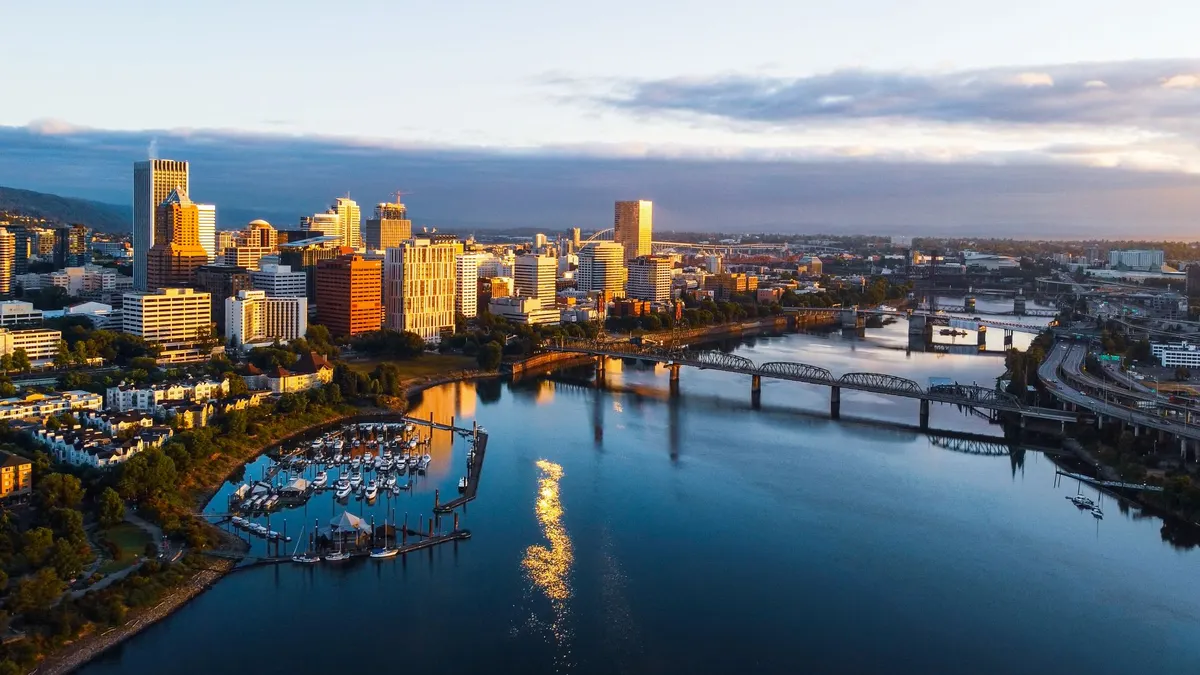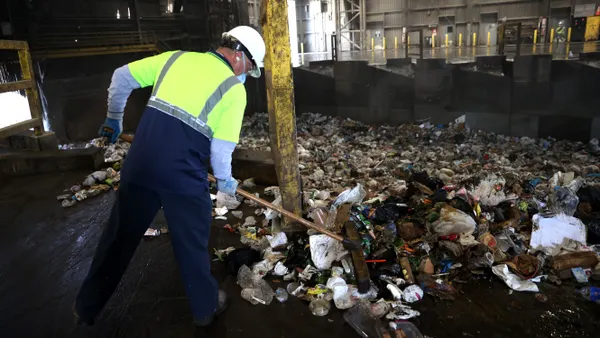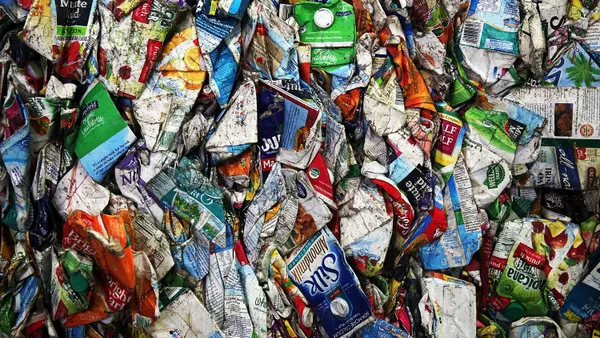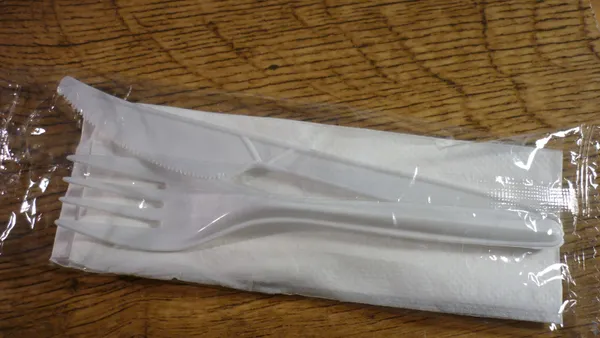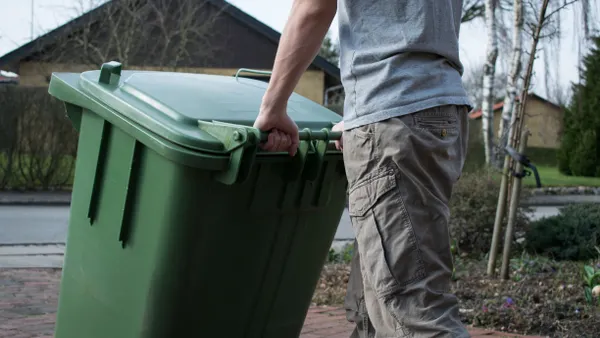Dive Brief:
- Oregon Gov. Tina Kotek signed a law on Tuesday allowing for the creation of a new type of beverage container redemption center in the state. These new sites will be designed specifically for canners, or people “who redeem empty beverage containers on a daily or near-daily basis,” according to the bill.
- The move is meant to allow certain redemption centers, such as grocery and convenience stores, to scale back their collection services or reduce the hours they accept container returns, as long as they are close enough to one of these new alternative collection sites. Changes are effective October 1, 2025.
- Supporters include Ground Score, a nonprofit that supports canners, as well as the Oregon Beverage Recycling Cooperative, the not-for-profit operator of the state’s bottle bill. The Northwest Grocery Retail Association also supported the bill.
Dive Insight:
Oregon has the oldest bottle bill in the country and typically has the highest redemption rate of any bottle bill state, in part because of a 10-cent redemption value and its range of redemption options. Yet in recent years, some retailers and residents say certain downtown Portland redemption centers have attracted drug activity and encampments for people experiencing homelessness, affecting access to the program, the Portland Tribune reported.
Some retail take-back operators have said the situation puts stress on staff and deters some residents from returning containers, while some homeless advocates have said the situation has vilified people who primarily make an income from collecting containers.
The law enables certain nonprofits to open “alternative access” redemption centers, which would not be operated at a traditional retailer like a grocer or convenience store. The law applies to Oregon cities over 500,000 people, but mainly affects the city of Portland.
A major supporter of the bill is the Ground Score Association, a nonprofit that operates The People’s Depot, a bottle redemption run by and for canners. The law effectively allows for spaces like The People’s Depot to expand its model to other parts of the city.
The law also allows nonprofits to apply for approval to open additional “mobile or satellite” sites. The Oregon Liquor and Cannabis Commission would review and approve any alternative sites.
Ground Score advocates for convenient redemption access for people who make a living mainly by collecting containers. The group has also spoken out against conflating canning with crime or drug use.
Kris Brown, operational manager of The People’s Depot, said in a support letter that canning is an important financial security net for many people, including people with disabilities that make it hard for them to work other types of jobs and people experiencing homelessness.
Brown pushed back against concerns that redemption centers were playing a role in enabling Portland’s fentanyl crisis. “As someone who works and employs canners on a daily basis I’ve learned that this claim is not true,” he said, adding that many longtime canners have become full-time employees at The People’s Depot, a site with a 90% employee retention rate. “We have learned that if we provide decent work, wages, respect and community, that canners will want to transition from collecting bottles and cans for income to formal benefited work with us.”
Under the new law, “large format” retailers, such as grocery stores, have several options for modifying their redemption services if they are located within 3.5 miles of an alternative nonprofit take-back site. Grocery store operators can choose to provide funding for a new alternative center in exchange for no longer accepting containers, or it can host a bag drop site for the state’s Green Bag and Blue Bag drop programs in lieu of accepting individual containers.
The bill also allows small convenience stores located in that same 3.5-mile vicinity to reduce the number of containers they can accept from a single person per day and limit redemption hours from 8 a.m. to 6 p.m. The law also allows other stores statewide to limit their redemption hours to 8 a.m. to 8 p.m.
OBRC said “carefully tailored improvements” to redemption zones, such as limiting grocery and convenience stores, “allows for sufficient staffing and support for redemption services at the stores.”
Other bill supporters say the new law will help relieve the pressure on downtown Portland retailers, who are sometimes understaffed or overwhelmed by large volumes of containers. The Portland Metro Chamber said it supports the state’s “iconic” bottle bill, but said it has recently become hard to sustain the redemption center model in high-density areas of Portland. “It has become virtually impossible in the downtown core to site redemption centers, which has left the burden of bottle redemption to retail stores,” the chamber wrote in a support letter.
Oregon’s attempt to balance redemption center functionality with the needs of residents in large, densely populated cities echoes work in other parts of the country. Cities like San Francisco have launched numerous pilot programs aimed at making redemption services safer and more convenient, while the Can Manufacturers Institute has called for crafting bottle bill legislation that includes equity considerations from the get-go, including more inclusive deposit systems.



